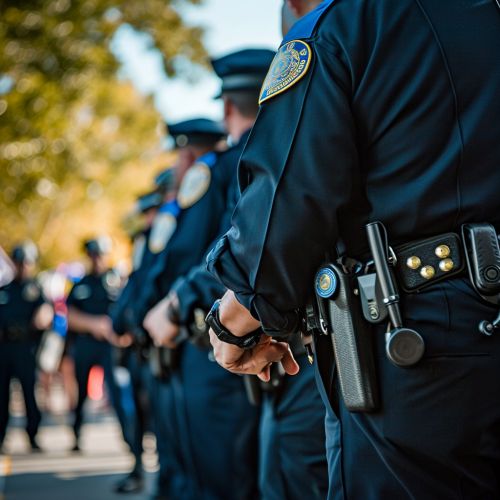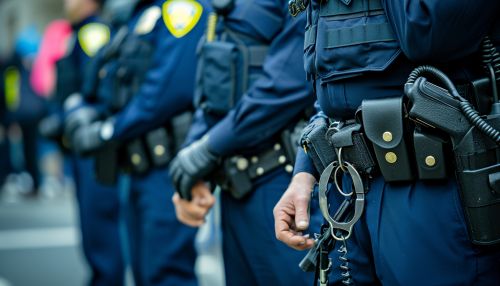Police Brutality
Definition and Overview
Police brutality is the unwarranted or excessive and often illegal use of force against civilians by U.S. police officers. Forms of police brutality have ranged from assault and battery (e.g., beatings) to mayhem, torture, and murder. Some broader definitions of police brutality also encompass harassment (including false arrest), intimidation, and verbal abuse, among other forms of mistreatment.
History
The history of police brutality is cyclical, going back to the earliest days of organized law enforcement in the United States. The issue has been a catalyst for many of the major social and political changes over the past century. Police brutality, while certainly not exclusive to the United States, is considered a systemic problem in the country.
Causes
There are many potential causes of police brutality, including individual officer traits, police department policies and culture, and societal factors. Some of the most commonly cited causes include a lack of police training, a lack of accountability, and systemic racism.
Effects
The effects of police brutality can be far-reaching, impacting not just the individuals involved, but also their families, communities, and society at large. These effects can include physical and psychological harm, a breakdown in community-police relations, and a decrease in public trust in law enforcement.
Prevention and Reform
Efforts to prevent police brutality and reform police departments have taken many forms over the years. These have included policy changes, increased oversight, and community policing initiatives. However, many challenges remain in addressing this issue.
See Also


